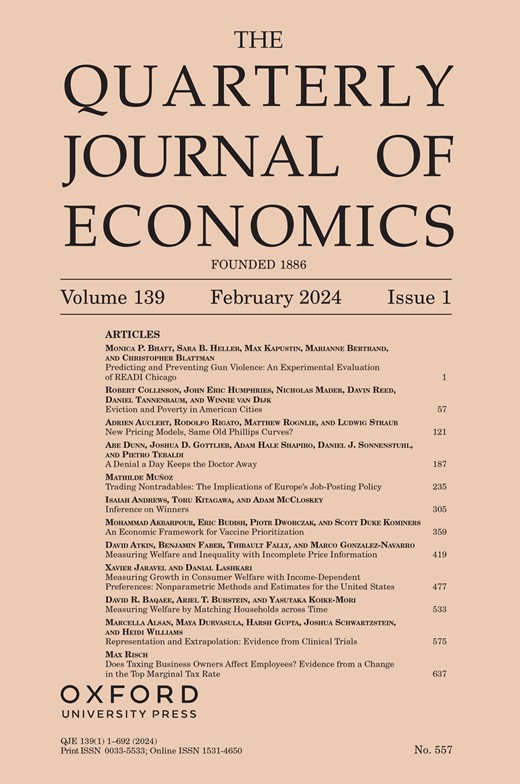信念运动、不确定性消减与理性更新*
IF 12.7
1区 经济学
Q1 ECONOMICS
引用次数: 28
摘要
当贝叶斯学习新信息并改变她的信念时,她必须同时对世界的状态更加确定。因此,贝叶斯很少在保持相对不确定的同时频繁地大幅改变信念,或者相反,在信念运动相对较少的情况下变得非常自信。我们通过在贝叶斯信念随时间变化的情况下开发运动和不确定性减少的具体度量来形式化这种直觉,表明这些度量在期望值上是相等的,并为贝叶斯性创建相应的统计测试。然后,我们展示了这两个核心概念和四种常见的心理偏见之间的联系,这表明该测试可能特别善于检测这些偏见。我们通过模拟我们的测试和其他鞅测试的性能来支持这一结论。最后,我们将我们的测试应用于个人、算法和市场信念的数据集。本文章由计算机程序翻译,如有差异,请以英文原文为准。
Belief Movement, Uncertainty Reduction, and Rational Updating*
When a Bayesian learns new information and changes her beliefs, she must on average become concomitantly more certain about the state of the world. Consequently, it is rare for a Bayesian to frequently shift beliefs substantially while remaining relatively uncertain, or, conversely, become very confident with relatively little belief movement. We formalize this intuition by developing specific measures of movement and uncertainty reduction given a Bayesian’s changing beliefs over time, showing that these measures are equal in expectation and creating consequent statistical tests for Bayesianess. We then show connections between these two core concepts and four common psychological biases, suggesting that the test might be particularly good at detecting these biases. We provide support for this conclusion by simulating the performance of our test and other martingale tests. Finally, we apply our test to data sets of individual, algorithmic, and market beliefs.
求助全文
通过发布文献求助,成功后即可免费获取论文全文。
去求助
来源期刊

Quarterly Journal of Economics
ECONOMICS-
CiteScore
24.20
自引率
2.20%
发文量
42
期刊介绍:
The Quarterly Journal of Economics stands as the oldest professional journal of economics in the English language. Published under the editorial guidance of Harvard University's Department of Economics, it comprehensively covers all aspects of the field. Esteemed by professional and academic economists as well as students worldwide, QJE holds unparalleled value in the economic discourse.
 求助内容:
求助内容: 应助结果提醒方式:
应助结果提醒方式:


